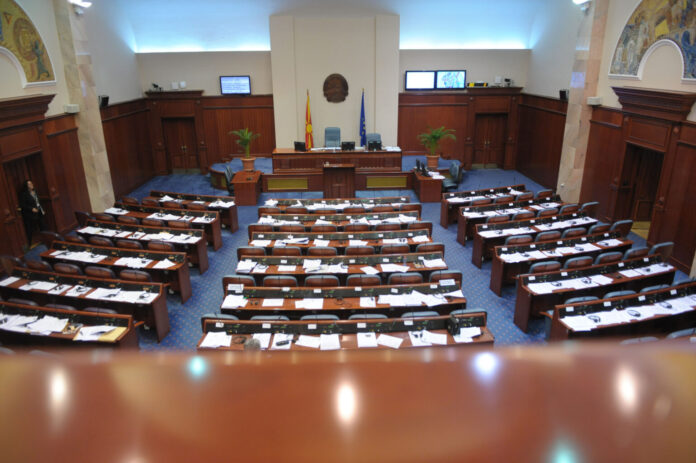Column | Eureka and AI
:format(jpeg):fill(f8f8f8,true)/s3/static.nrc.nl/bvhw/wp-content/blogs.dir/114/files/2023/01/heijden.png)
Will an AI ever call – and deserved – Eureka? Just like Archimedes who ran through the streets of Syracuse exposed?
The former Greek philosopher had just stepped in the bath shortly before which he had seen water over the edge of the bath. A simple observation. But in a flash he then realized that it was his own body – at least, the immersed part of it – that this moved water. And also: that you can therefore determine the often difficult volume of objects. You simply lower them in the bath water and measure, simple, how much water moves. It led him – ‘Eureka’, or ‘now I have it!’ – Until his law of Archimedes.
FactCheckers have of course already had that story checked. Just like the story that Newton, when an apple fell on his head, suddenly saw through gravity. Even the rather subdued Eurekamoment of Einstein doubts. Einstein really understood that a free -falling object or person does not notice gravity when he staring out of the window which saw window cleaners pass? According to facts lovers, we know only one thing for sure: that Einstein’s unexpected insight led him to replace Newton’s gravity theory with something new, the theory of relativity.
At the same time, apple, window cleaner and exposed or not – remains enigmatic how the solution of a problem sometimes reveals itself; In the shower, the bus boarding or even in a dream. It is almost even more religious than Serendipity, where alert researchers encounter the solution of a problem that they did not work at all. Think of The notable Alexander Fleming Who recognized the effect of fungus in a forgotten petri dish and so discovered penicillin. Together, Serendipity and the Eurekamoment represent the elusive and romantic side of natural science.
Crazy by romance
But the great power of science is of course also that it is not carried away by romance. Ideas and finds only count after they have first been tested and after tested. Einstein found it more than encouraging that the wobbly track of the planet Mercury deviated from Newton’s predictions, and did correspond to what his relativity theory predicted. But to convince other physicists of that enormous tilt in thinking about gravity, much more evidence was needed.
What does that mean science is starting to lean on AI more and more? Marika Taylor, professor of mathematics and physics and AI in Birmingham, last brought up at the British Institute of Art and Ideas. Her lecture there went about how Ai can accelerate science. She thereby limited a ‘discovery’ to finding a physical theory that can make testable predictions. And with regard to AI, she only considered the current neural networks. You can feed large data sets with which you can train them to recognize dogs and cats, for example. Or, in particle physics, The characteristic patterns of particle traces To identify that according to theoretical scenarios can arise as particles clap on top of each other in large underground particle boters, such as at CERN at Geneva.
In such cases, AI is a fantastic tool, Taylor said. The experiments provide the (sometimes complex) patterns of billions of collisions. An AI can not only sort it at lightning speed, but also signal unexpected patterns that, who knows, indicate an unknown collision mechanism. Something like this can go to new discoveries to lead.
Tilt
But: whether an AI can also come to an insight from such a deviation from the existing theory that makes the entire perspective tilt, such as Newton and Einstein? Suppose Einstein could have had the current precision measurements on that wobbly Mercury track. And that he could have led it to a neural network that was trained with Newton’s theory. Then such a network would undoubtedly have fed them back that Mercury’s track deviated from the theory. The AI could even indicate in terms of that theory (a potential) which mathematical correction (a bump in the potential) is needed to describe the job. But turning physics upside down with a brand new concept – gravity as a curvature of space time? Unthinkable.
Taylor left in the middle what that means for science. Probably wise, because AI is still in full development. And yet. The ingredients for Eurekniedsten seem deeply thinking on one, and loosely musing, associating, meeting and circulating on the other. And it is certain that AI is not (yet) possible.
At the same time, the question is: would Einstein himself be able to be able to do such a perspective after AI had beaten him with all those outcomes? In other words, what happens to that ‘romantic’ and ‘creative’ side of science while AI is being further developed and in the meantime presorts more and more displayed information? What physicists, science and people grow from that?
Margriet van der Heijden is a physicist and professor of science communication at the Eindhoven University of Technology.

:format(webp)/s3/static.nrc.nl/images/gn4/stripped/data132927810-30fd8b.jpg)
/s3/static.nrc.nl/images/gn4/stripped/data133024837-1cfc4c.jpg|https://images.nrc.nl/JTTOZ3N-h2NmvmdPIN9BOMn3vlY=/1920x/filters:no_upscale()/s3/static.nrc.nl/images/gn4/stripped/data133024837-1cfc4c.jpg|https://images.nrc.nl/DmQsR5VYB9-Fftb1_UvAm2hcyJs=/5760x/filters:no_upscale()/s3/static.nrc.nl/images/gn4/stripped/data133024837-1cfc4c.jpg)
:format(webp)/s3/static.nrc.nl/images/gn4/stripped/data132512191-bf7b93.jpg)



